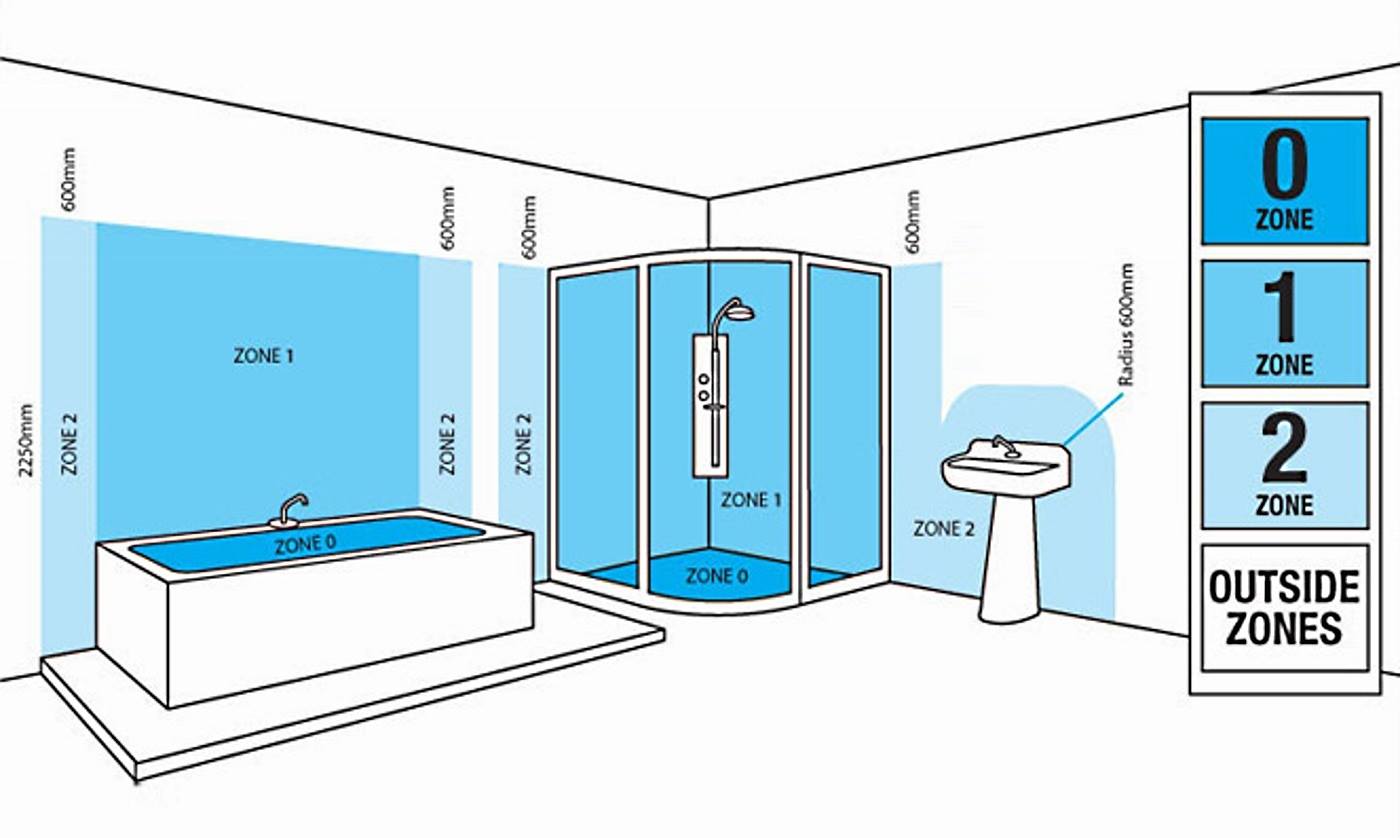Standard Bathroom Light Fixture Height
Great care needs to be taken when choosing lighting for your bathroom, as there are strict regulations regarding the type of lights you can use.
It is also highly important to choose bathroom lighting that will provide you with good visibility, as well helping to brighten your bathroom. The use of bathroom mirrors both of the illuminated and non-illuminated varieties, are a great way of creating the illusion of space and light within a small area.
Here at The Lighting Superstore you will find one of the most comprehensive ranges of bathroom lights available and all at great prices and with rapid delivery. The following guide will help you ensure that you select the correct lights for your bathroom.

How The Bathroom Lighting Zones Are Broken Down
When thinking about lighting for your bathroom it is important to think about the below Bathroom Zones, to ensure the lighting you want can be installed in your desired location.
Zone 0 is inside the bath or shower itself. Any fitting used in this zone must be low voltage, (max 12v) and be rated at least IP67 which is total immersion proof.
Zone 1 is the area above the bath or shower to a height of 2.25m from the floor. In this zone a minimum rating of IP45 is required but it is generally accepted that IP65 is to be used. It's also worth noting that most shower lights are rated at IP65 in any case.
Zone 2 is an area stretching 0.6m outside the perimeter of the bath and to a height of 2.25m from the floor. In this zone an IP rating of at least IP44 is required. In addition it is good practice to consider the area around a wash basin, within a 60cm radius of any tap to be considered as zone 2.
Outside Zones are anywhere outside zones 0,1 and 2 (subject to specific limits) and where no water jet is likely to be used. There are no special IP requirements in this zone, however we suggest that you consider a light with an IP rating of at least IP20+.
In addition to the above, if there is a likelihood of water jets being used for cleaning purpose then a fitting rated with a minimum of IP65 must be used. Full details can be found in the latest copy of the IEE wiring regulations.
IP Ratings and Exactly What The Numbers Mean
IP (or Ingress Protection and International Protection as they are also known) ratings are used to define the degree of protection provided against intrusion with electrical enclosures.
The first digit tells you the level of protection against access to hazardous parts and the ingress of foreign objects, for example dust. The second digit tells you the protection against moisture i.e. water.
First Digit (Ingress of Solid Objects)
-
- 0 - No Protection
- 1 - Protected against penetration by solid objects 50mm+
- 2 - Protected against penetration by solid objects 12mm+
- 3 - Protected against penetration by solid objects 2.5mm+
- 4 - Protected against penetration by solid objects 1mm+
- 5 - Dust Protected
- 6 - Dust Tight
Second Digit (Ingress of Water)
-
- 0 - No Protection
- 1 - Protected from vertically falling drops
- 2 - Protected from water drops falling at a max angle of 15°
- 3 - Protected from water as in the rain at a max angle of 60°
- 4 - Protected from splashing or projection
- 5 - Protected from low pressure jets
- 6 - Protected from high pressure jets
- 7 - Protected from temporary immersion
- 8 - Protected against long periods of immersion
(Please not this information is not an installation guide. Reference should be made to the IEE Wiring Regulations - 17th Edition and you should always seek advice from a qualified electrician before you install lighting within your bathroom).
Standard Bathroom Light Fixture Height
Source: https://www.thelightingsuperstore.co.uk/bathroom-lighting-zones

0 Komentar